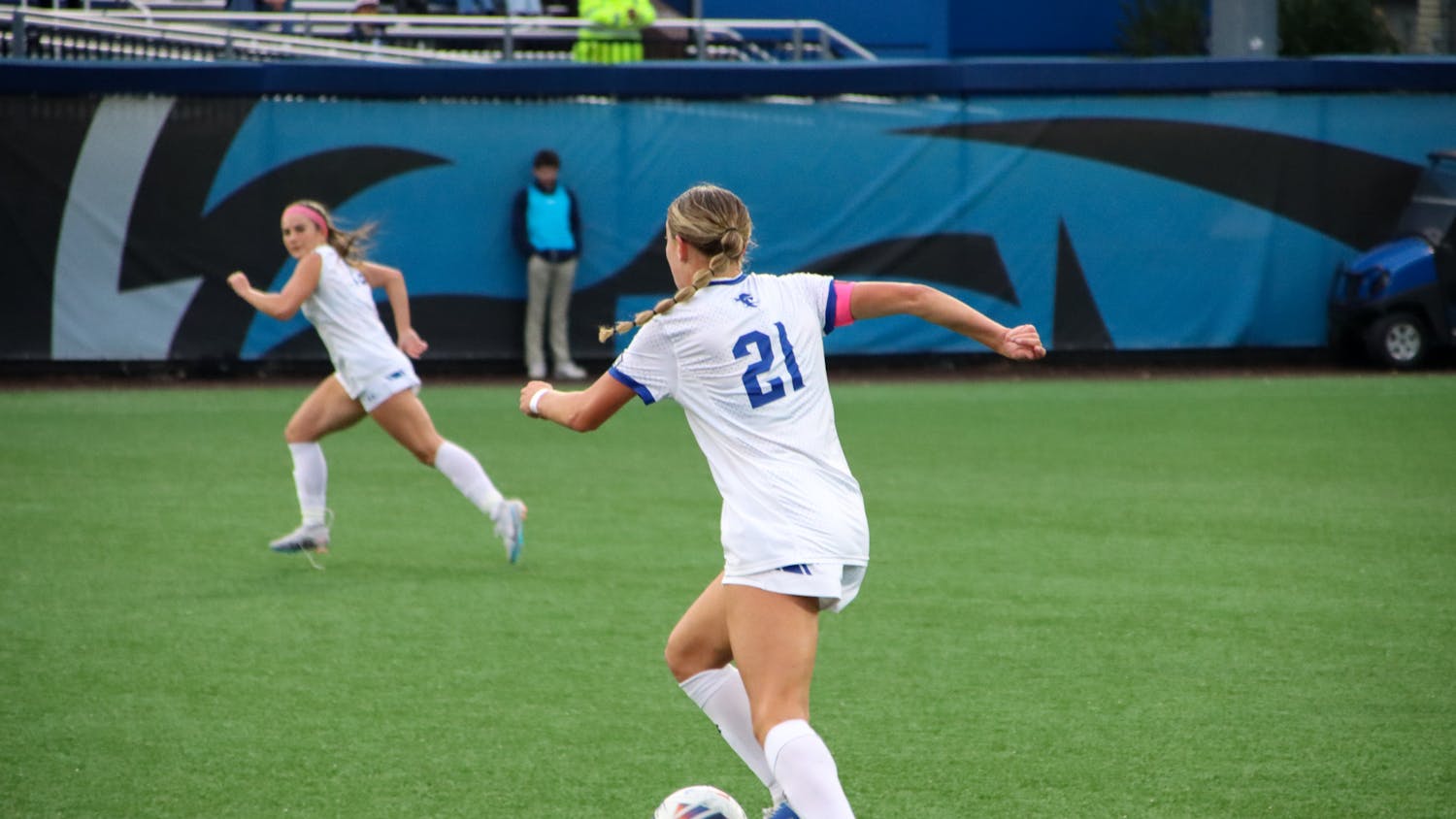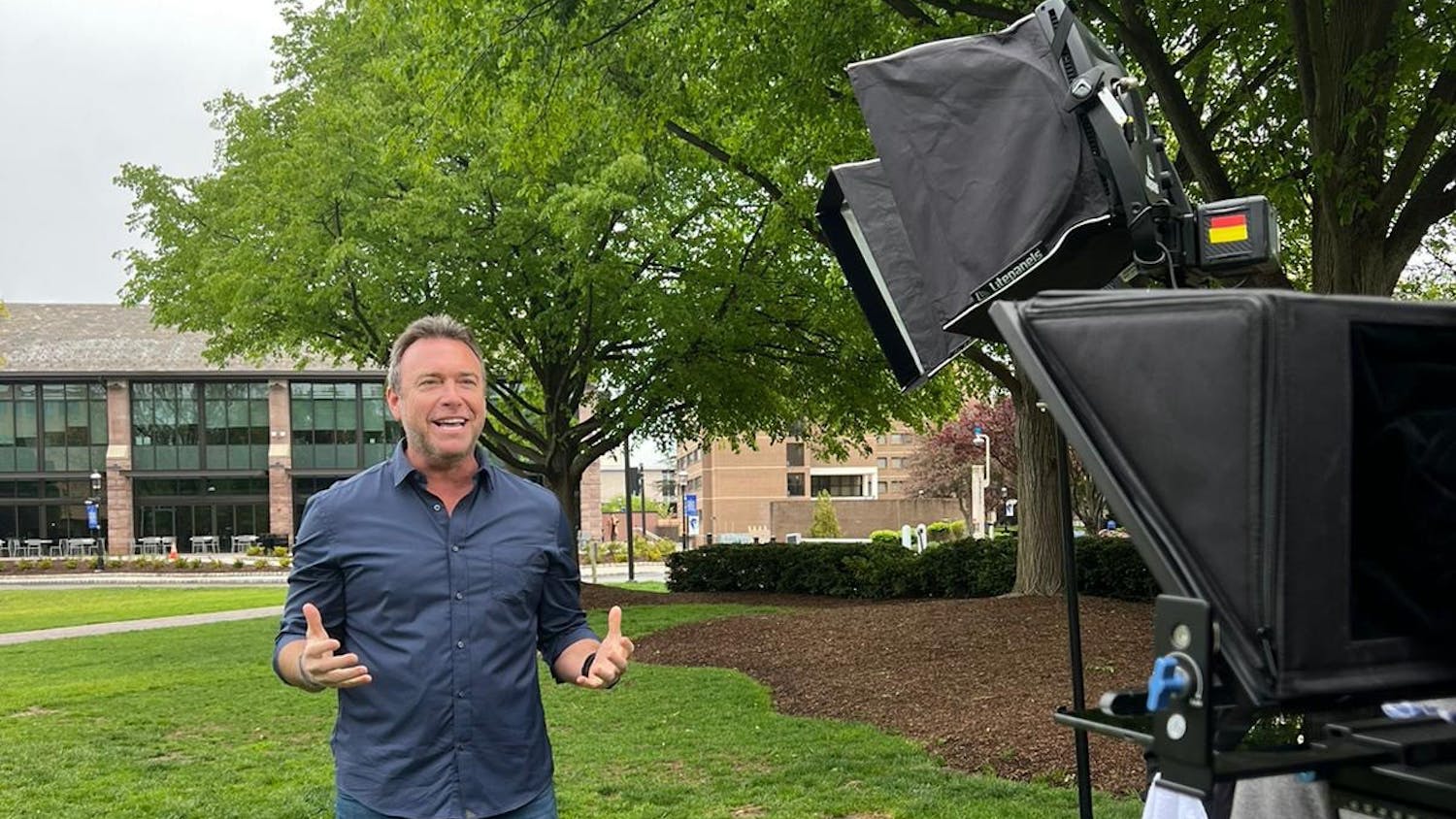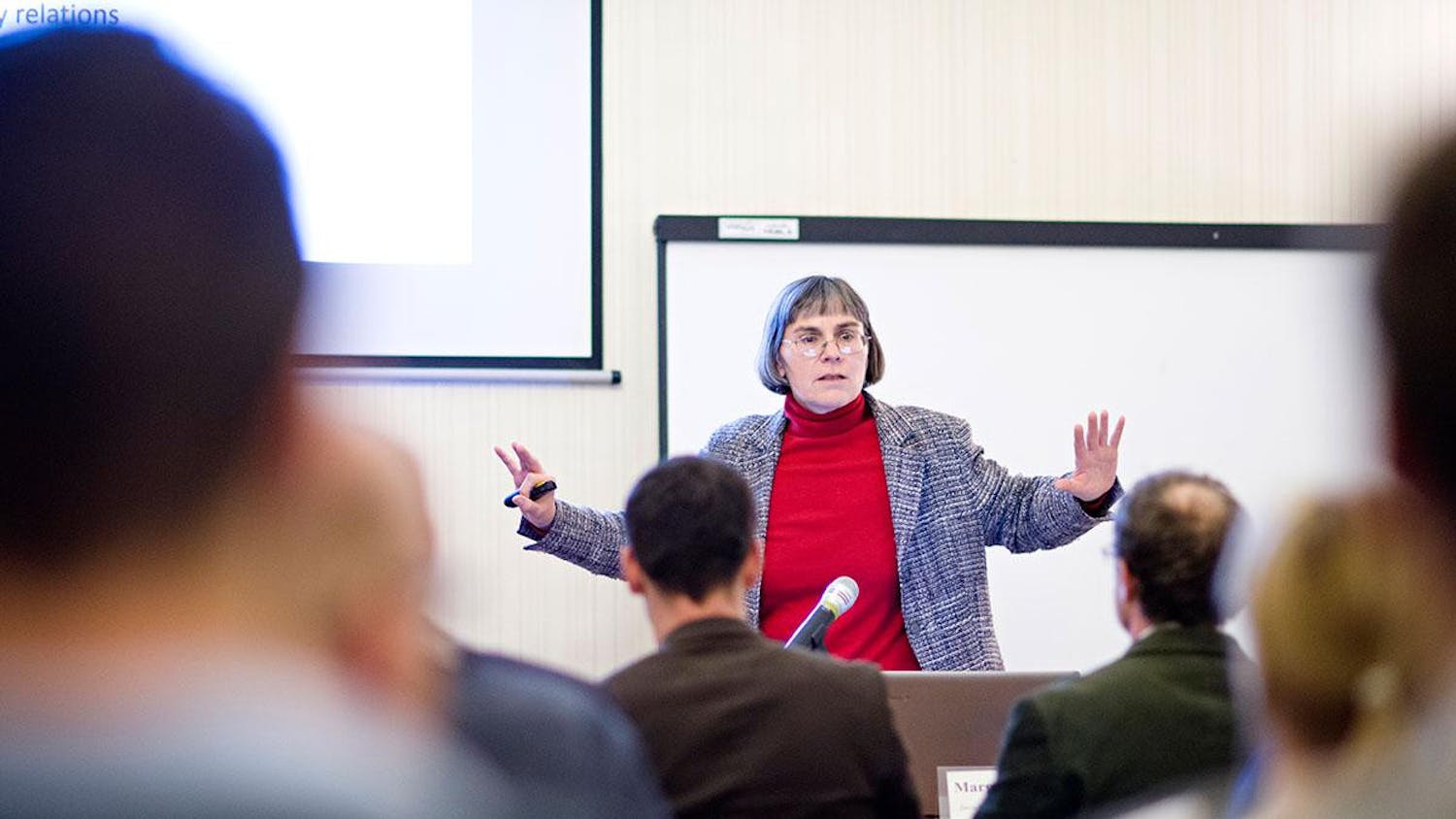[caption id="attachment_9687" align="alignright" width="222"] Photo courtesy of Santina Bambaci[/caption]
My mom, Superman, Lady Gaga, Arnold Schwarzenegger, Hannah Montana (now that’s a throwback): responses you may have had to the question “who is your role model” as a child. Would you respond the same way today?
Psychology professor Michael Vigorito said people typically think that role models are important for young children, but psychologists study the importance of role models to college students.
“A role model may be important for anyone to grow intellectually, socially, spiritually or professionally, regardless of age and gender,” Vigorito said.
On college campuses you can find a role model in anyone: a roommate, a professor, a Big/Little, a counselor, etc. In your very room or a large lecture hall, a role model can help guide and shape your college experience.
Sophomore Santina Bambaci, a member of Alpha Gamma Delta, said she considers her Big, junior Tiffani Brown, one of her role models.
“(Your Big) is the one person in the sorority that is always there for you,” Bambaci said. “You have your sisters, but your Big is always the first person you go to if you’re having trouble in school or need someone to talk to.”
According to Bambaci, in a way some people want to be like their Bigs.
“You can see things in life they have gotten through and accomplished and it makes you think you can do it too,” Bambaci said.
During your college years, you may not only find a role model to last through your college journey or a lifetime, but you may become a role model to someone as well.
“Being a role model isn’t something I woke up one morning and thought I’d try it out for size like a pair of suede boots,” Brown said. “As I grow and mature into a better version of myself, I could only hope to inspire and lead others purely through my experiences and lessons I’ve learned along the way.”
Brown said being a role model entails more than being a friend or a Big. As a role model, Brown said, she holds her Little’s best interest in mind and helps her in any way she can to achieve her goals.
Role models can help individuals break free of what they feel they are meant to do and take the path they truly desire.
All they need is a role model who has broken free of the stereotypes themselves to show them it could be done, according to Vigorito “Role models can help any individual change his or her view of the world and allow growth towards an individual’s full potential as a human,” Vigorito said.
Dr. Priti Shah, assistant director of Outreach and Prevention Counseling and Psychological Services, said during graduate school she had a professor who she truly looked up to because she was of the same cultural background, doing what she aspired to do and achieving just as she hoped to.
“I think that is the beauty of having a role model or a mentor—that a student can connect with someone who might be like them or can relate, but also a few years ahead, to provide a student a vision of what’s possible,” Shah said. “It gives a student the idea that ‘I can do this too.’”
Sophomore Andrea Tufano named her cooperating teacher as part of the onsite component of the special and elementary education program as her mentor following similar reasoning as Shah.
“I know that I want to work with children in the future,” Tufano said. “Seeing my cooperating teacher with her students and running a lesson I imagine myself in her situation in a few years.”
“Being able to see how excited her students get to see her is really inspiring,” Tufano added.
Tufano said she has been inspired to make a difference in children’s lives by helping them learn.
Michelle Foti can be reached at michelle.foti@student.shu.edu.
Photo courtesy of Santina Bambaci[/caption]
My mom, Superman, Lady Gaga, Arnold Schwarzenegger, Hannah Montana (now that’s a throwback): responses you may have had to the question “who is your role model” as a child. Would you respond the same way today?
Psychology professor Michael Vigorito said people typically think that role models are important for young children, but psychologists study the importance of role models to college students.
“A role model may be important for anyone to grow intellectually, socially, spiritually or professionally, regardless of age and gender,” Vigorito said.
On college campuses you can find a role model in anyone: a roommate, a professor, a Big/Little, a counselor, etc. In your very room or a large lecture hall, a role model can help guide and shape your college experience.
Sophomore Santina Bambaci, a member of Alpha Gamma Delta, said she considers her Big, junior Tiffani Brown, one of her role models.
“(Your Big) is the one person in the sorority that is always there for you,” Bambaci said. “You have your sisters, but your Big is always the first person you go to if you’re having trouble in school or need someone to talk to.”
According to Bambaci, in a way some people want to be like their Bigs.
“You can see things in life they have gotten through and accomplished and it makes you think you can do it too,” Bambaci said.
During your college years, you may not only find a role model to last through your college journey or a lifetime, but you may become a role model to someone as well.
“Being a role model isn’t something I woke up one morning and thought I’d try it out for size like a pair of suede boots,” Brown said. “As I grow and mature into a better version of myself, I could only hope to inspire and lead others purely through my experiences and lessons I’ve learned along the way.”
Brown said being a role model entails more than being a friend or a Big. As a role model, Brown said, she holds her Little’s best interest in mind and helps her in any way she can to achieve her goals.
Role models can help individuals break free of what they feel they are meant to do and take the path they truly desire.
All they need is a role model who has broken free of the stereotypes themselves to show them it could be done, according to Vigorito “Role models can help any individual change his or her view of the world and allow growth towards an individual’s full potential as a human,” Vigorito said.
Dr. Priti Shah, assistant director of Outreach and Prevention Counseling and Psychological Services, said during graduate school she had a professor who she truly looked up to because she was of the same cultural background, doing what she aspired to do and achieving just as she hoped to.
“I think that is the beauty of having a role model or a mentor—that a student can connect with someone who might be like them or can relate, but also a few years ahead, to provide a student a vision of what’s possible,” Shah said. “It gives a student the idea that ‘I can do this too.’”
Sophomore Andrea Tufano named her cooperating teacher as part of the onsite component of the special and elementary education program as her mentor following similar reasoning as Shah.
“I know that I want to work with children in the future,” Tufano said. “Seeing my cooperating teacher with her students and running a lesson I imagine myself in her situation in a few years.”
“Being able to see how excited her students get to see her is really inspiring,” Tufano added.
Tufano said she has been inspired to make a difference in children’s lives by helping them learn.
Michelle Foti can be reached at michelle.foti@student.shu.edu.





